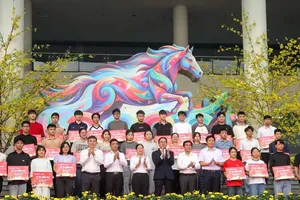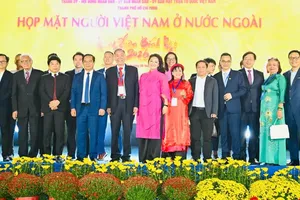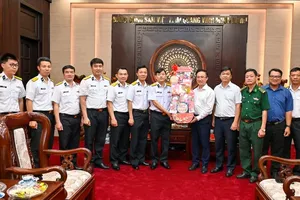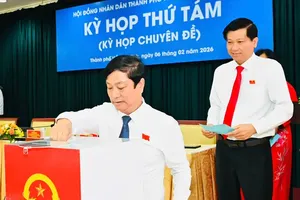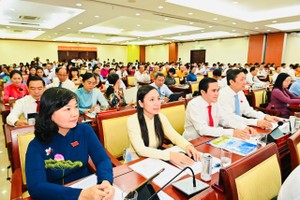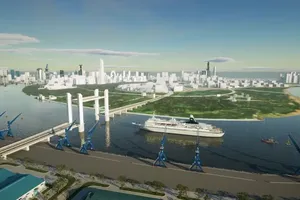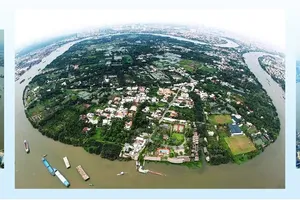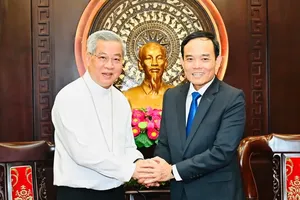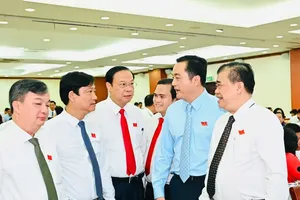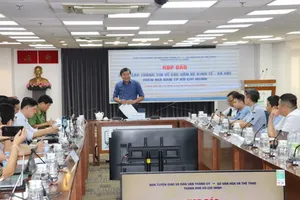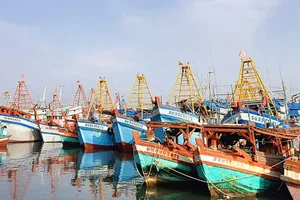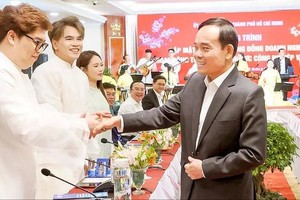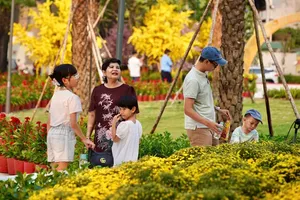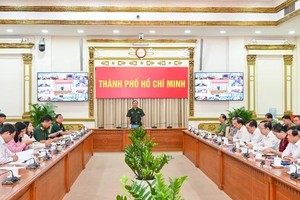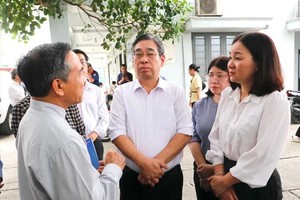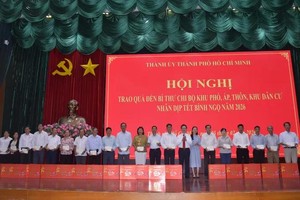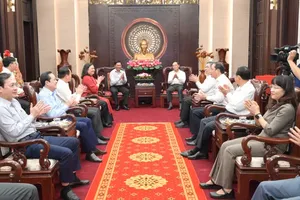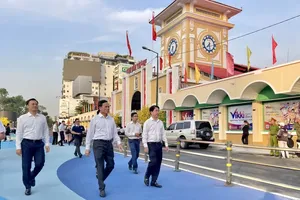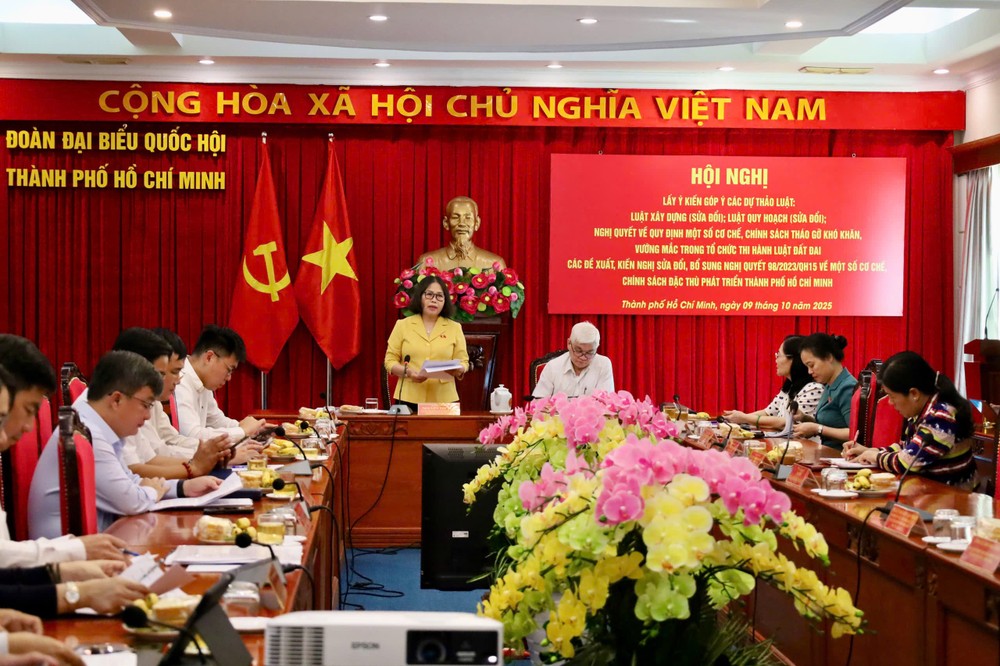
Many delegates emphasized the urgent need to amend and supplement National Assembly Resolution 98 to enable HCMC to take a more proactive role in urban planning, investment decentralization, and grassroots administrative organization — areas still considered the city’s biggest bottlenecks.
The HCMC Delegation of National Assembly Deputies convened a consultation session on several draft laws, including amendments to the Law on Construction, the Law on Planning, and a draft resolution on mechanisms to address obstacles in implementing the Land Law, on the morning of October 9. The session also discussed proposals to revise Resolution 98/2023/QH15 on piloting special mechanisms and policies for HCMC’s development.
Free Trade Zone — a new growth driver
Dr. Truong Minh Huy Vu, Director of the HCMC Institute for Development Studies, noted that Resolution 98 has been in force for just over two years — still short of the legal review period. However, given the city’s new development context, many emerging factors now require timely research, adjustments, and expanded mechanisms. Since July 1, HCMC’s administrative boundaries have been expanded, resulting in a higher population, a larger area, and greater investment demand.
From two years of implementation, Dr. Truong Minh Huy Vu observed that Resolution 98 had given a strong boost to the city’s economy, but several provisions have become outdated, making revisions both urgent and necessary.
The latest draft, therefore, centers on four major policy directions. It calls for further delegation of investment authority to the HCMC People’s Council and People’s Committee, enabling the city to decide on projects in public zones, railway stations, adjacent areas, and ring-road corridors, thereby addressing inconsistencies between existing land and investment regulations.
In terms of urban management, natural resources, and the environment, the draft expands the land fund available for build-transfer (BT) projects and authorizes the city to directly reclaim and allocate land in certain cases to accelerate project implementation and resolve long-standing bottlenecks.
It also aims to attract strategic investors in sectors aligned with HCMC’s development priorities — including specialized healthcare, waste-to-energy, logistics, seaports, airports, and cultural heritage — while introducing more flexible selection criteria. Notably, the draft proposes establishing a Ho Chi Minh City Free Trade Zone as a new growth engine, linked to four designated trade areas, with an initial pilot to be launched in the Cai Mep–Ha seaport region.
Mrs. Nguyen Thi Le, former Deputy Secretary of the HCMC Party Committee and former Chairwoman of the HCMC People’s Council, noted that after more than two years of implementing Resolution 98, the city had achieved significant results. Of the 44 mechanisms and policies assigned, 36 have been executed. The economy has recovered rapidly, and major infrastructure projects — notably four BOT projects worth over US$2.25 billion, the HCMC–Moc Bai Expressway, metro lines, and regional connectivity routes — have been accelerated.
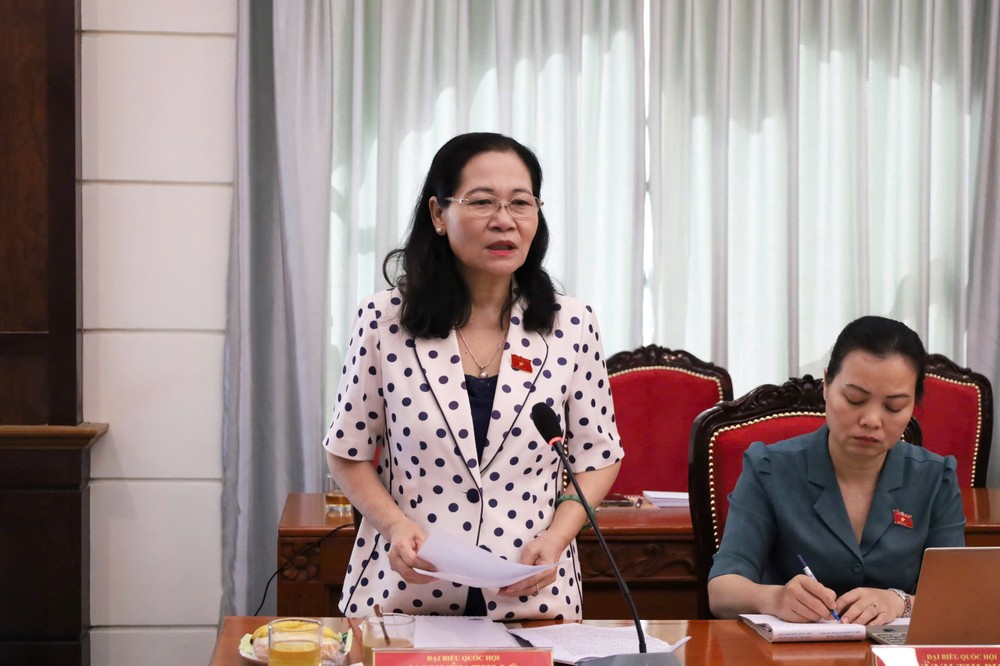
However, she also pointed out persistent challenges. Under the two-tier local government model, the division of powers and responsibilities between the municipal and grassroots levels remains unclear, leading to “uncertain authority but heavy responsibility” at the commune level. She called for adjustments to ensure more efficient and flexible local governance.
From this reality, Mrs. Nguyen Thi Le proposed that the National Assembly and Government consider revising Resolution 98 to expand HCMC’s authority — particularly in budgeting, finance, land management, and public investment. She also suggested allowing the city to continue piloting smart urban governance, providing comprehensive online public services, and building a shared database linking city and commune systems to enhance transparency and efficiency.
Stronger decentralization in urban planning
Assoc. Prof. Dr. Tran Hoang Ngan, NA Deputy, noted that while some have claimed Resolution 98 has not delivered substantial results, real progress is visible — from securing policies and resources for the Ring Road 3 project to expanding staff quotas and replicating new policy models nationwide.
HCMC’s population has grown from about 10 million to 14 million permanent residents, and nearly 20 million, including visitors and short-term residents. With over 450,000 active businesses and one-third of the nation’s total budget revenue, the city now demands “a stronger, more adaptive institutional framework.”
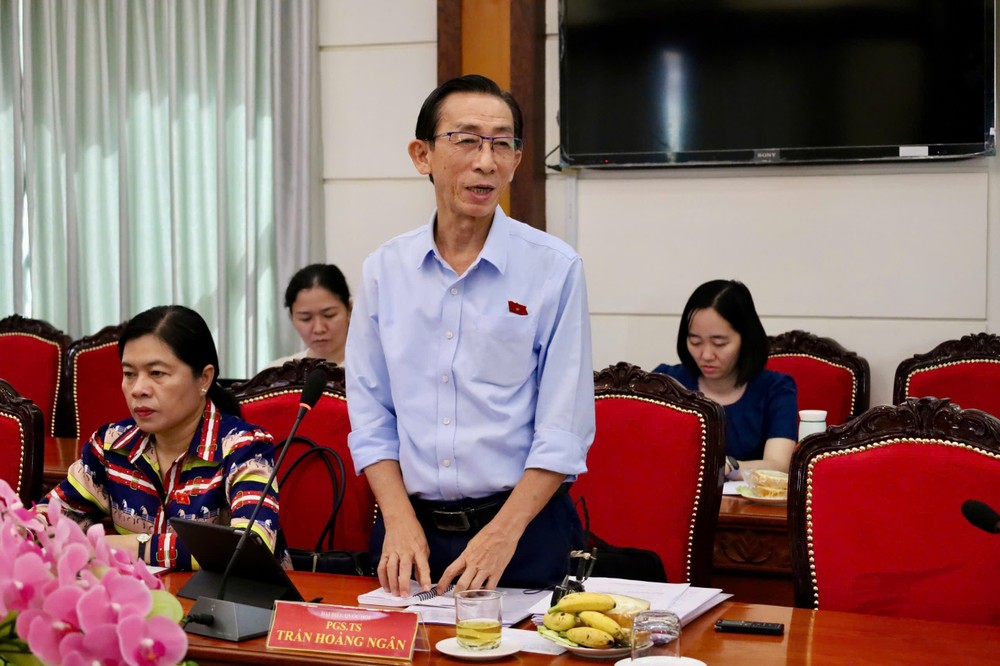
Dr. Tran Hoang Ngan proposed greater decentralization and empowerment for HCMC in urban planning, particularly as amendments to the Law on Planning are still pending. He also suggested granting the city authority to determine its administrative organization, staffing at ward and commune levels, and the number of deputy positions and departments. Additionally, he called for broader mechanisms to invest in transport, healthcare, education, cultural, energy, and digital infrastructure.
Assoc. Prof. Dr. Nguyen Quoc Dung, former Director of the Ho Chi Minh National Academy of Politics (Region II), agreed that stronger and more practical special mechanisms are needed for HCMC to fully realize its potential as Vietnam’s leading metropolis.
He acknowledged, however, that implementing Resolution 98 has faced numerous difficulties — including overlapping regulations and unclear decentralization between ministries, central and municipal agencies, and local authorities. The five-year pilot period, he said, is insufficient for a comprehensive evaluation, especially of complex investment and planning mechanisms.
He urged the central government to quickly issue the missing guiding decrees on decentralization, investment incentives, land pricing, compensation, resettlement, and transit-oriented development (TOD) mechanisms, while reviewing and amending all conflicting legal documents to ensure consistency and feasibility.
About 800 “stalled” projects await resolution
At the meeting, Mr. Nguyen Van Loi, Member of the Party Central Committee and Head of the HCMC Delegation of National Assembly Deputies, affirmed that revising Resolution 98 is essential to meet the city’s new-stage development needs.
He pointed out that institutional bottlenecks — especially those concerning planning, financial mechanisms, and investment decentralization — continue to hinder progress. Currently, around 800 projects in HCMC remain suspended due to land and planning obstacles. Without stronger special mechanisms, he warned, the city would struggle to realize its full development potential.
HCMC’s demand for strategic infrastructure investment during 2025–2030 is estimated at VND2.5 quadrillion (US$100 billion), but the municipal budget can cover only about VND1.5 quadrillion (US$60 billion). The remaining capital must be mobilized from private and social sources, which, he stressed, requires a more flexible financial framework to effectively channel investment into the city’s growth priorities.
